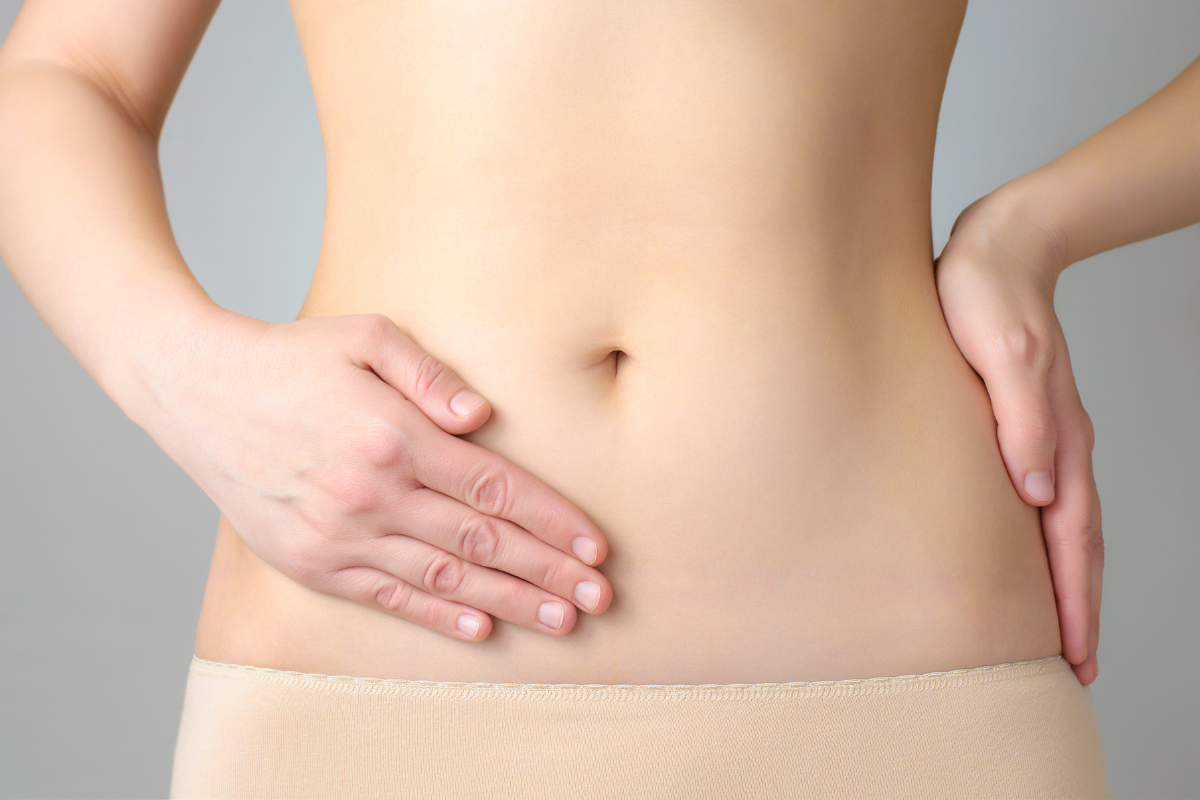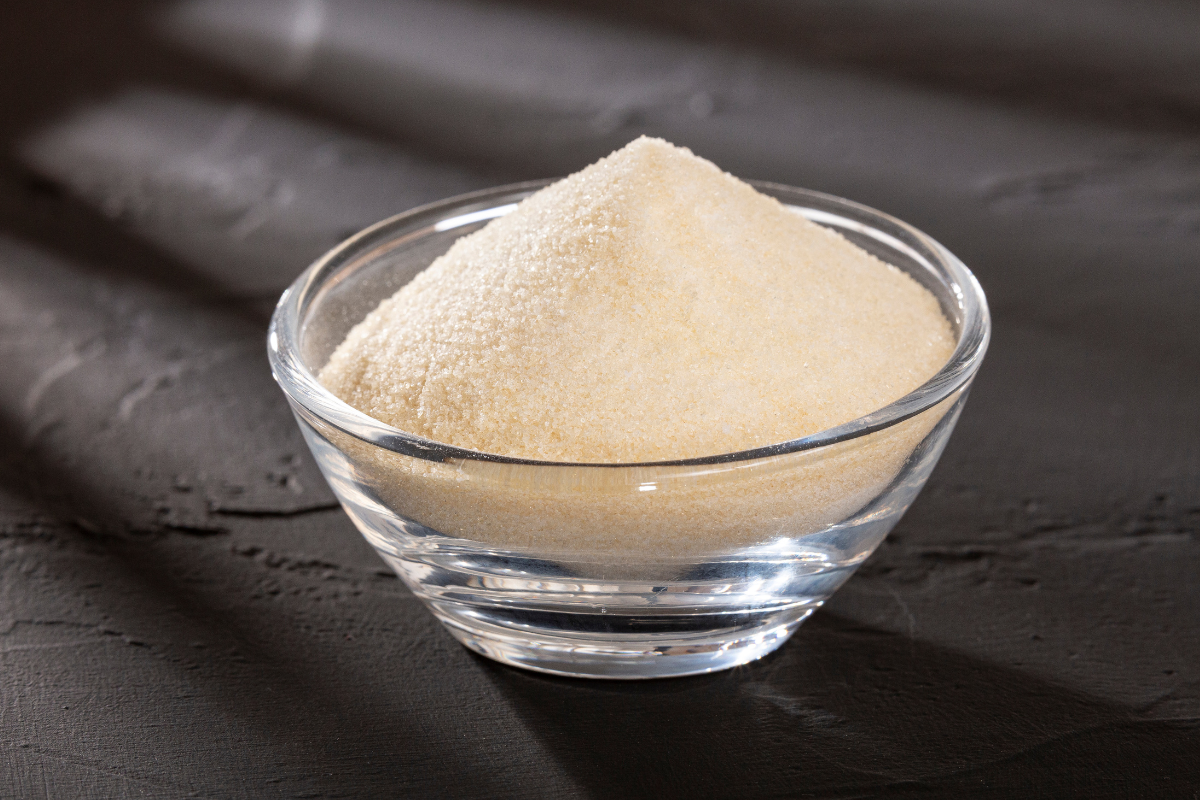Collagen for intestines, stomach, skin & joints

Collagen for intestines, stomach, skin & joints
You may recognize collagen as an ingredient in your face cream or you may have seen various supplements that contain collagen. But what is collagen? What exactly does collagen do? Collagen is the most common protein in our bodies, especially type 1 collagen.
Collagen is found, among other things, in muscles, bones, skin, blood vessels, the digestive system (gastrointestinal tract), ligaments, cartilage and tendons. Collagen's benefits are so striking because this protein is what helps give our skin strength and elasticity, while also helping to replace dead skin cells.
When it comes to our joints (tendons, ligaments and cartilage), collagen acts as the "glue" that helps hold the body together. Our body's collagen production (unfortunately!) begins to decline as we age, in fact already at the age of 25. We can "thank" this degenerative process for the signs of aging that occur; such as wrinkles, loose skin and joint pain due to weaker or reduced cartilage.
Other lifestyle factors – such as eating a high-sugar diet, smoking and high amounts of sun exposure – also contribute to reduced levels of collagen in our bodies. It has been shown that collagen-related diseases most often result from a combination of either genetic defects, low intake of collagen-rich foods (since in our traditional cooking we no longer consume this type of food, such as broth decoctions), nutritional deficiencies and digestive problems that affect the production (synthesis) of collagen.
Are collagen and gelatin the same thing?
Are you curious about how collagen differs from gelatin and how it differs from other proteins that are already inside the body? You may have heard collagen and gelatin mentioned in the same breath. That's because gelatin comes from collagen – when collagen breaks down, it becomes gelatin.
An example of how this works: the process of boiling bones in water. Bones contain large amounts of collagen , and when the bones are boiled in water, during the cooking process that takes place over one to two days, the collagen slowly breaks down into gelatin.
PS! Gelatin can come from the skin, bones and connective tissue of animals such as cattle, chicken, pig and fish. Gelatin/collagen can never be vegan.
Gelatin was actually one of the first foods used as a medical treatment in ancient China; our ancestors discovered that food is medicine very early! Broth decoction on bones, for example, can facilitate healing of the mucous membrane, which means improved nutrient absorption and less risk of "leaky gut" (particles that leak out of the gut to places in the body where they shouldn't be). In other words, gelatin is full of the same good things as collagen, just in a different form.
Can collagen counteract stiff joints and joint pain?
Have you ever felt extra stiff and hurt when you move? Yes, it is probably a loss of collagen that demonstrates this. That's because when we lose collagen, our tendons and ligaments begin to "become less mobile," leading to stiffness, swollen joints, and more.
With its jelly-like, smooth structure that coats and holds our bones together, collagen allows us to move without pain. Compare eating more collagen to lubricating a squeaky hinge on a door: the collagen helps joints move more easily, reduces the pain often associated with aging, and even reduces the risk of joint deterioration. It's no surprise that there are studies showing that collagen is effective in treating osteoarthritis and other wear and tear damage to the joints.
Researchers at Harvard's Beth Israel Deaconess Medical Center in Boston investigated the benefits of collagen and found that supplementing with type 2 collagen helped patients suffering from rheumatoid arthritis find relief from painful symptoms by reducing swelling in tender joints.
Another study published in the "International Journal of Medical Sciences" found that people with osteoarthritis treated with type 2 collagen show significant improvements in daily activities, such as climbing stairs, and a general improvement in quality of life.
Is collagen healing for the stomach and intestines?
If you suffer from "leaky gut", a condition where substances that are bad for you can pass through your digestive tract, then collagen can be of great help. Collagen helps heal damaged cell walls and rebuilds your stomach and intestinal wall with healing amino acids.
The biggest digestive benefit of consuming more collagen is that it helps form connective tissue and therefore “seals and heals” the protective wall of the gastrointestinal tract. Today, we know that many diseases can actually be traced to inflammation or irritation stemming from an unhealthy gut.
Poor gut health – including changes in gut flora and permeability of the gut wall – allows particles to pass into the bloodstream where they can start an inflammatory cascade (hence the name leaky gut syndrome). Studies have found that in patients with inflammatory bowel disease, the serum concentration of collagen is reduced.
Because the amino acids in collagen build the tissue that makes up the wall of the gastrointestinal tract, supplementing with collagen can help treat gastrointestinal symptoms and disorders, including leaky gut syndrome, IBS, Crohn's disease, and ulcerative colitis.
Does collagen keep the skin young and counteract sagging skin with visible cellulite?
Fish collagen for the skin is considered number 1 among dietary supplements for this particular large bodily organ! As we age, collagen production decreases – it's actually happening right here, right now, as you read this! You will notice it physically, by having looser skin, more wrinkles and a skin with less elasticity. Increased levels of collagen, on the other hand, can help your skin look firmer, increase smoothness, and help your skin cells renew and repair normally.
The benefits of collagen also include reducing cellulite and stretch marks. When the skin loses its elasticity due to decreased collagen, there is another side effect: more visible cellulite. Because your skin is now thinner, the cellulite becomes more visible - and the skin can no longer hide what lies beneath the surface.
An increased intake of collagen helps to increase the elasticity of the skin and can therefore reduce the visibility of cellulite. This makes collagen one of the best natural ingredients for more beautiful skin with less visible cellulite.
Is collagen good for nails, hair and teeth?
Do you have nails that break off easily? Then a lack of collagen may actually be the culprit. Collagen protein is the building blocks of nails, hair and teeth. Adding collagen to your diet can help keep nails strong and reduce hair loss.
A study published in the "Journal of Investigative Dermatology" found that there are "significant associations between extracellular matrix (ECM) and hair follicle regeneration, suggesting that collagen benefits may include being a potential therapeutic target for hair loss and other skin-related diseases." "








